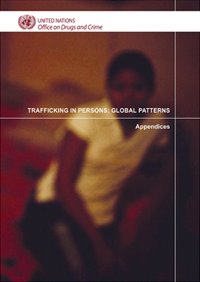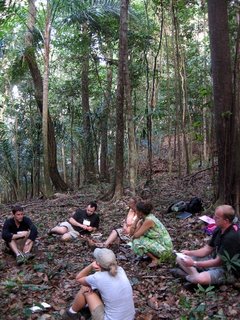
Pursuing a new growth strategy (Pt III)
published: Sunday April 30, 2006
Edward Seaga, Contributor
SO FAR, this series of articles has argued on the one hand that a fixed exchange rate regime produces low inflation, low interest rates, and upper middle to high incomes per capita on a sustained basis.
This contrasts with the outcomes of the inflation-targeting strategy based on a floating exchange rate: higher inflation, higher interest rates, and low to lower-middle incomes per capita.
If we follow through the argument of the merit of a wage-led growth strategy for which suitable employment opportunities would have to be found for a great many workers, then the question of the under-development of the agricultural sector must be squarely faced.
With the filling out of the few remaining potential areas suitable for further hotel development, the expansion plans for maximising exploitation of the mining sector already in place and the relatively marginal potential which exist for increased manufacturing, the only resource base available for substantial productive growth and new employment is agriculture.
GROWTH PROSPECTS IN AGRICULTURE
The impression is often given that agriculture has no future. The present traditional pattern of agricultural production varies from high technology to no technology. The segment of the sector that lacks technology is also the area of highest under-employment.
Agro 21 proved that technology could transform idle lands into productive fruit orchards, including one of the largest banana plantations (Victoria Banana) and artificial ponds into highly productive aquaculture. Its failure to create a viable export vegetable industry was mostly due to disease and heavy flooding which totally submerged all crops in two of its three-year trial period. It took Mexico seven years to find the right approach to creating a very successful and profitable winter vegetable agricultural operation. Vegetable farming is still an open opportunity for success.
This time, the emphasis should be on organic vegetables, one of the fastest growing areas of agriculture yielding high profit mark-ups. Mariculture has greater possibilities than has yet been exploited to develop seafood delicacies for the great many Chinese outlets on the eastern seaboard of America.
Hydroponics has already established operations with super abundant yields and very low unit costs, undercutting vegetable costs from imported sources and fully supplying local hotels with selected products. This opens the door wide to development of a substantial vegetable export programme supplying hotels throughout the Caribbean.
Biotechnology offers opportunities for the development of nutraceuticals in the health food industry, one of the fastest growing industries. Jamaica has 800 species of plants which are endemic, representing one of the largest biotechnological potentials in the world. Research, while progressing and with some results, has to be expedited.
WHERE IS THE AGRI-DEVELOPMENT PLAN?
With all these potentials and others, for these examples are not an exclusive list, what is the plan for agricultural development? There is no plan that I am aware of which assesses the entire agricultural sector fully on the future of crops and livestock. Studies have been carried out on specific crops and particular types of livestock, but no comprehensive approach has been produced capable of presenting a plan to modernise and transform the sector. The time now is very appropriate with the questionable future of sugar, to review the entire sector, incorporating new ideas, new products and new technologies.
Idle hands are only one part of the problem. Idle lands are the other. Productive lands need water for irrigation. St. Catherine alone has 12,000 acres of land which are idle because of lack of irrigation.
A plan developed by Agro 21 in the late 1980s, mapped out the construction of a 500-acre mega reservoir, several times the size of the Mona reservoir, which would trap the floodwaters of the Rio Cobre River, 80 per cent of which now flows to the sea in times of flood rains.
The reservoir would be gravity fed from river to storage and storage to farm, requiring no electrical power. Indeed, it would produce some hydro-electrical power for the national grid. What better solution to put idle lands and idle hands to work than by introducing modern production techniques to introduce new crops based on new thinking and providing new employment?
There is need for planners to take the initiative to create a plan for a modern agricultural sector, as begun by Agro 21, incorporating land use and irrigation needs, assessing crop-by-crop potential, particularly now with concerns about the future of sugar.
This type of planning was done for industry in the preparation of an Industrial Policy a few years ago, notwithstanding the adversities of limited local raw materials for industry and the burden of exceptionally high electricity costs. Why not for agriculture, a sector endowed with resources and manpower relying little on electrical energy?
I repeat, agriculture represents the only remaining resource base with substantial potential for expansion of production. Giving up on agriculture is an option which we cannot afford.
OVERCOMING POVERTY
There is another imperative for reviving the agricultural sector. Poverty is synonymous with small-scale farming in Jamaica. The statistics confirm this. There is little hope for overcoming poverty without brighter prospects for small farming.
One of the great socio-economic divides of Jamaica is the distribution of income which has traditionally maintained two classes of people, the "haves" and the "have nots", as I labelled them more than 40 years ago. Here again, improving incomes would rely on better prospects in the small farming sector.
The abundance of resources with which Jamaica is richly endowed: fertile land, inviting climate, strategic geography, abundant minerals, resourceful people and a vibrant culture, compared to other countries which were not then, but are now, far more successful than Jamaica, this tells a sad story of inability to shut our eyes to the failures of the past and open them to visions of the future.
For there is a future, but only if we are bold enough to grasp it with earnest conviction and a profound determination to establish beyond any doubt that Jamaica has no reason to be poor.
© Copyright 1997-2006 Gleaner Company Ltd.





























 Government Information Service, Port of Spain, April 25, 2006. Trinidad and Tobago (T&T) has facilitated the Petro Caribe arrangement between Venezuela and other Caricom countries for them to enjoy the benefits of favourable payment terms for petroleum products from Venezuela, according to Prime Minister Patrick Manning.
Government Information Service, Port of Spain, April 25, 2006. Trinidad and Tobago (T&T) has facilitated the Petro Caribe arrangement between Venezuela and other Caricom countries for them to enjoy the benefits of favourable payment terms for petroleum products from Venezuela, according to Prime Minister Patrick Manning.















